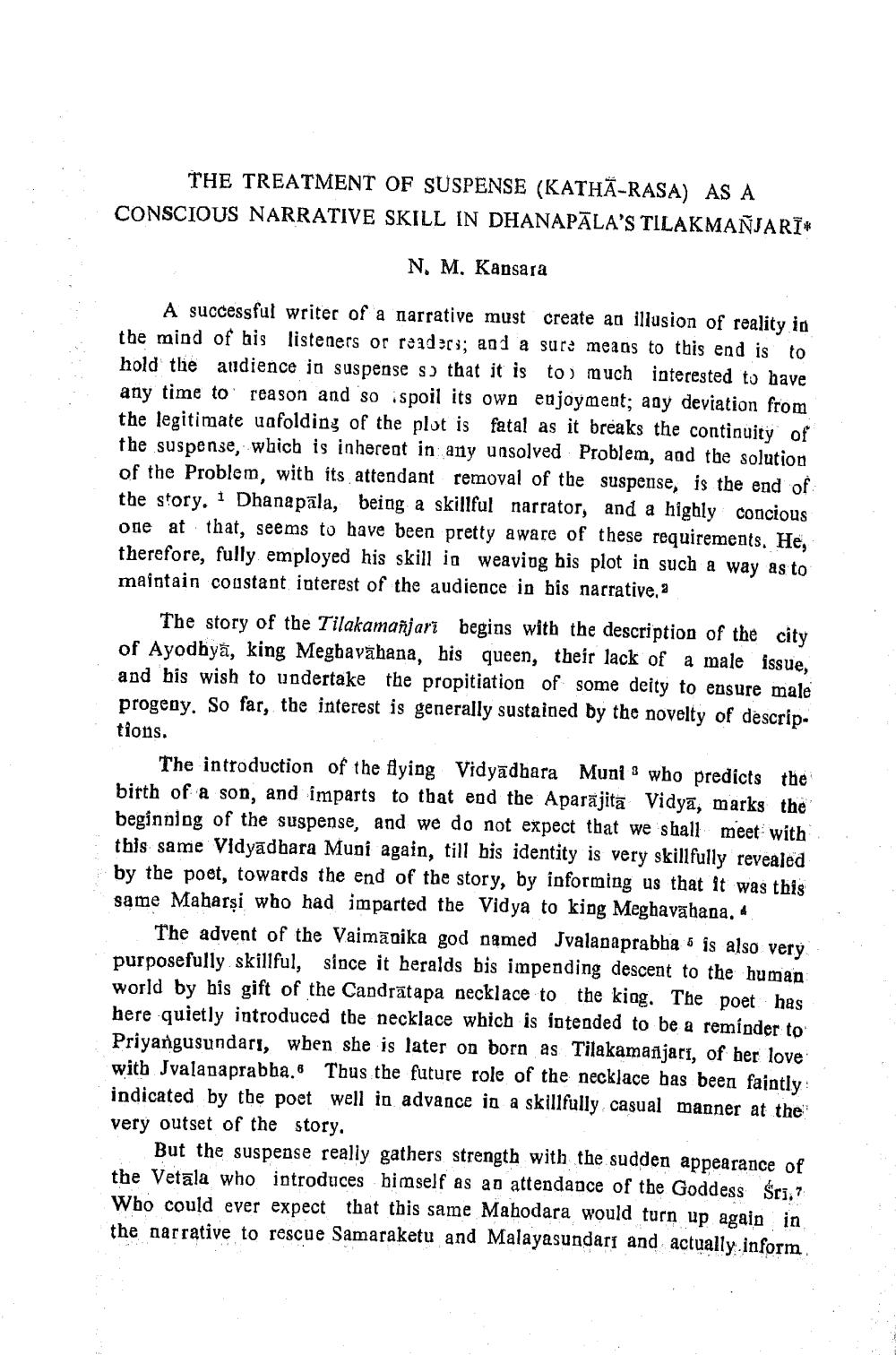________________
THE TREATMENT OF SUSPENSE (KATHA-RASA) AS A CONSCIOUS NARRATIVE SKILL IN DHANAPĀLA'S TILAKMANJARĪ*
N. M. Kansara
A successful writer of a narrative must create an illusion of reality in the mind of his listeners or read=c3; and a sura means to this end is to hold the audience in suspense so that it is toj much interested to have any time to reason and so spoil its own enjoyment; any deviation from the legitimate uafolding of the plot is fatal as it breaks the continuity of the suspense, which is inherent in any unsolved Problem, and the solution of the Problem, with its attendant removal of the suspense, is the end of the story. 1 Dhanapāla, being a skillful narrator, and a highly concious one at that, seems to have been pretty aware of these requirements. He, therefore, fully employed his skill in weaving his plot in such a way as to maintain constant interest of the audience in bis narrative, a
The story of the Tilakamañjarī begins with the description of the city of Ayodhya, king Meghaváhana, his queen, their lack of a male issue, and his wish to undertake the propitiation of some deity to ensure male
y. So far, the interest is generally sustained by the novelty of descrip. tions.
The introduction of the flying Vidyadhara Munt? who predicts the birth of a son, and imparts to that end the Aparajita Vidya, marks the beginning of the suspense, and we do not expect that we shall meet with this same Vidyadhara Muni again, till bis identity is very skillfully revealed by the poet, towards the end of the story, by informing us that it was this same Maharşi who had imparted the Vidya to king Meghavahana,
The advent of the Vaimānika god named Jvalanaprabha 5 is also very purposefully skillful, since it heralds bis impending descent to the human world by his gift of the Candrātapa necklace to the king. The poet has here quietly introduced the necklace which is intended to be a reminder to Priyangusundari, when she is later on born as Tilakamanjari, of her love with Jvalanaprabba. Thus the future role of the necklace has been faintly indicated by the poet well in advance in a skillfully casual manner at the very outset of the story,
But the suspense really gathers strength with the sudden appearance of he Vetala who introduces himself as ao attendance of the Goddess þri.? Who could ever expect that this same Mahodara would turn up again in the narrative to rescue Samaraketu and Malayasundari and actually inform




